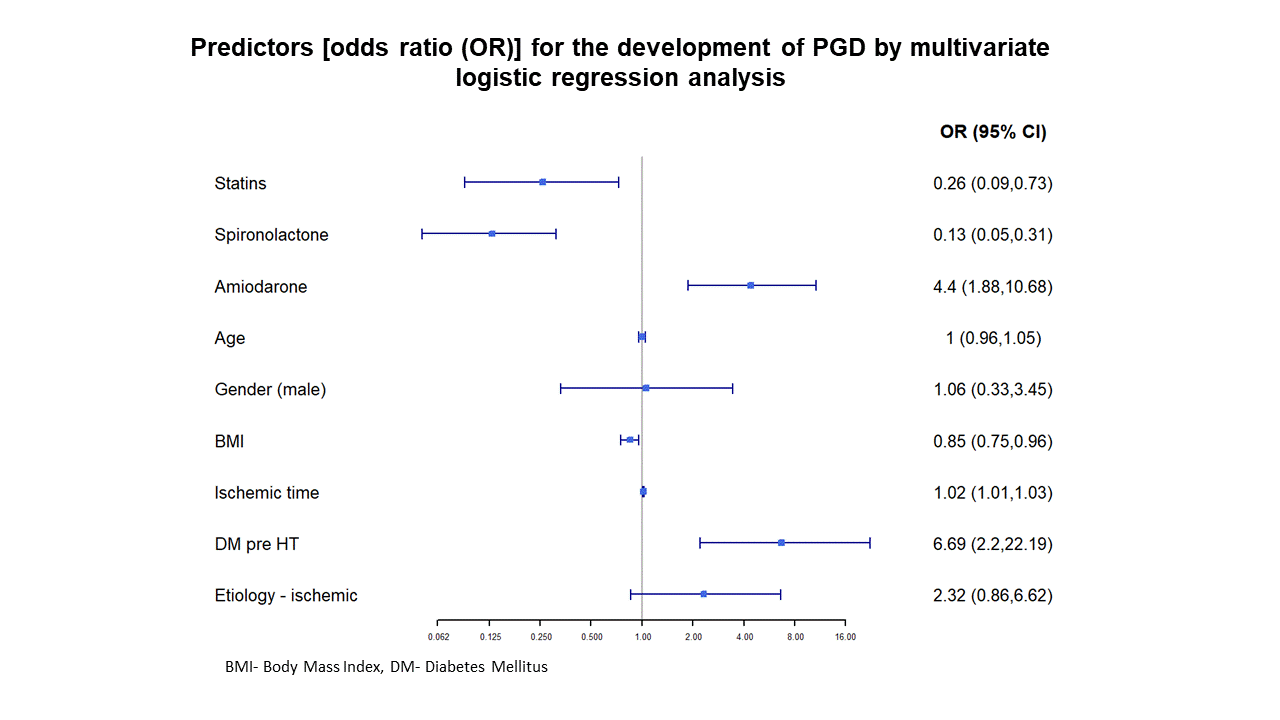
Treatment with a Statin or Spironolactone is Associated with a Reduced Risk for Primary Graft Dysfunction and Mortality
Purpose: Primary graft dysfunction (PGD) is a leading cause of early morbidity and mortality after heart transplantation (HT) and is a significant predictor of adverse outcomes. We aimed to investigate the influence of pharmacologic therapies administered to the recipient before HT on PGD.
Methods: Between 1997-2017 we assessed 279 HT patients. Pharmacological therapies at the time of HT were reviewed, including a statin, spironolactone, amiodarone, beta-blockers (BBs) and ACE-inhibitors (ACEIs). Endpoints included PGD (defined according to the ISHLT consensus statement), in-hospital mortality, 1- and 5-yr survival.
Results: In the group of patients diagnosed with PGD (102; 36.5%) vs the non-PGD group, fewer had received pre-HT statins (35 vs 75%, p<0.001) or spironolactone (32 vs 81%, p<0.001), and more, amiodarone therapy (70 vs 29%, p<0.001). Donor characteristics were similar. Multivariate analysis consistently demonstrated that pre-HT treatment with a statin or spironolactone was independently associated with a significant 74% and 87% reduced risk for PGD, while pre-HT amiodarone therapy was independently associated with a significant >4-fold increased risk for PGD (Figure). Statin therapy was independently associated with a significant reduction in PGD severity (OR 0.26, 95% CI 0.03-0.74). In-hospital mortality was significantly lower for patients treated with a statin (9 vs 21%, p=0.006) or spironolactone (7 vs 27%, p<0.001) vs nontreated patients, with a corresponding significantly higher 1-yr (89 vs 73%, p=0.001; 91 vs 67% p<0.001) and 5-yr survival (86 vs 67%, p=0.002; 88 vs 60%, p<0.001, respectively). Conversely, 5-yr survival was significantly lower for patients treated with amiodarone (67 vs 82%, p=0.008). Pre-HT therapy with a BB or an ACEI was not associated with PGD.
Conclusions: Pre-HT statin or spironolactone therapies are independently associated with a reduced risk for PGD and mortality, whereas amiodarone therapy is associated with an increased risk.


Powered by Eventact EMS